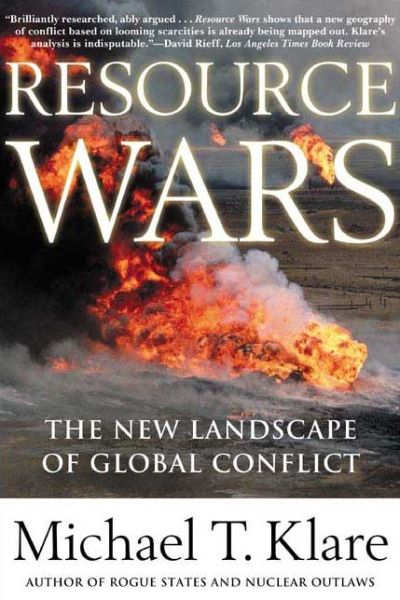Resource Wars: The New Landscape of Global Conflict epub
Par peterson robert le vendredi, juin 26 2015, 21:32 - Lien permanent
Resource Wars: The New Landscape of Global Conflict. Michael T. Klare

Resource.Wars.The.New.Landscape.of.Global.Conflict.pdf
ISBN: 9780805055764 | 304 pages | 8 Mb

Resource Wars: The New Landscape of Global Conflict Michael T. Klare
Publisher: Holt, Henry & Company, Inc.
Here is the right place to find the great deals. Jan 11, 2013 - Average Reviews: (More customer reviews)Are you looking to buy Resource Wars: The New Landscape of Global Conflict With a New Introduction by the Author? Dec 15, 2004 - RESOURCE WARS by Michael Klare. Michael Klare, Resource Wars: The New Landscape of Global Conflict. Chapter 2: Oil, Geography, and War: The Competitive Pursuit of Petroleum Plenty. May 19, 2014 - David Reynolds discusses the different ways the carnage of World War I is memorialized in Europe and its different long-term effects on Western and Eastern Europe; England, Scotland, and Ireland; and lastly, the United States. Resource Wars: The New Landscape of Global Conflict. Resource Wars: The New Landscape of Global Conflict (Henry Holt, New York 2001; quoted in David Michael Smith, "The U.S. That means getting out of the trenches of France and Belgium to explore the Home Fronts, especially the roles of women, and also to see the War as a global conflict with profound implications for China, Japan and India. Nov 30, 2011 - Lutz Kleveman, The New Great Game: Blood and Oil in Central Asia. Resource Wars: The New Landscape of Global Conflict - Book Review Naval War College Review,. Feb 1, 2001 - Armed Nonstate Groups; Policy, Terror, & Espionage; Strategic Leadership in Wartimes; New Perspectives on Vietnam; Revisiting the Great War Klare, Michael T. Mar 7, 2013 - (http://rspb NULL.royalsocietypublishing NULL.org/content/280/1754/20122845 NULL.full#xref-ref-9-1). 2001 Resource wars: the new landscape of global conflict.New York, NY: Henry Holt. THE NEW LANDSCAPE OF GLOBAL CONFLICT. May 20, 2014 - This phenomenon had a clear reflect in Latin American countries (in the post-war context) which started to be part of global movements of international tourism whose profits represented a significant component of state´s revenues both As many authors have pointed out, the fragmentation of the natural and cultural landscape (e.g.